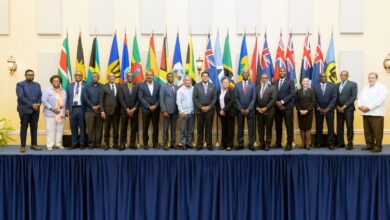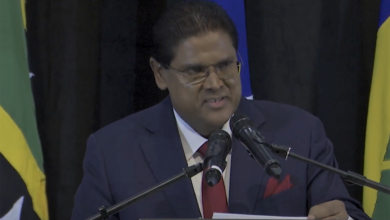GENEVA, Switzerland — The human rights records of both Suriname and St Vincent and the Grenadines (SVG) were due to be examined by the UN Human Rights Council’s Universal Periodic Review (UPR) Working Group for the second time on Monday.
Suriname and SVG are two of the 14 states to be reviewed by the UPR Working Group during its upcoming session taking place from 2 to 13 May. Suriname’s first review took place on May 2, 2011, and SVG’s first UPR took place on May 10, 2011.
The documents on which the reviews are based are:
1) National report – information provided by the State under review;
2) Information contained in the reports of independent human rights experts and groups, known as the Special Procedures, human rights treaty bodies, and other UN entities;
3) Information provided by other stakeholders including national human rights institutions, regional organizations and civil society groups.
Among the issues to be raised are:
Suriname:
• The protection of indigenous peoples’ individual and collective rights, including land rights issues;
• Steps taken to eliminate gender-biases and to empower women;
• Gender equality in the transmission of nationality and the issue of stateless children;
• Addressing domestic violence;
• Measures taken to combat human trafficking, child labour and the corporal punishment of children;
• Access to education;
• The negative impact of mercury poisoning due to gold mining on the environment and indigenous communities;
• The minimum age of marriage;
• The establishment of an independent human rights institution;
• The fact that the death penalty is still part of the military penal code; and
• Impunity for past human rights violations.
SVG:
• Combating gender-based violence;
• The Domestic Violence Act;
• Combating human trafficking;
• Gender equality measures;
• Eliminating patriarchal attitudes and stereotypes that discriminate against women;
• Prohibiting discrimination on basis of sexual orientation and gender identity;
• The use of corporal punishment in schools;
• Child protection laws;
• Protection of children against sexual exploitation;
• The age of criminal responsibility;
• The unemployment rate in the country;
• The minimum age for employment; equality of men and women in the labour market;
• Eradicating poverty;
• Health and reproductive issues; and
• The effects of natural disasters on rural women.






